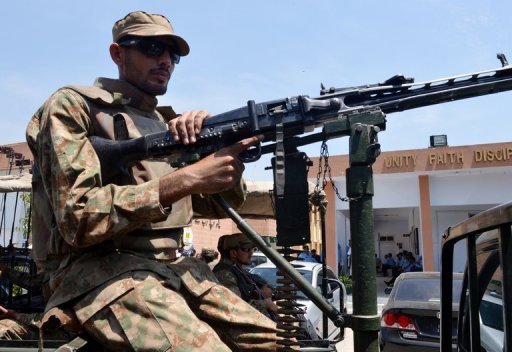CAIRO: Hot on the heels of Israeli President Shimon Peres’ meeting with President Hosni Mubarak in Cairo earlier this week, the Israeli press has latched onto the succession scenario that has dominated local media debates in recent weeks.
The Egyptian media has buzzed with rumors in recent weeks regarding plans to orchestrate a transition of power from 81-year-old incumbent president to his son, Gamal.
Tel Aviv-based tabloid Maariv reported Wednesday that unnamed Israeli officials said Mubarak may be showing indications of health problems. They believed the death of his 12-year-old grandson Mohamed in May has taken a toll on the president, who otherwise continues to function, make pubic appearances and travel.
But this has prompted Mubarak to begin making plans to leave his post in the near future, the paper said.
Israeli officials believe he would like to initiate the transfer of power soon, while he is still alive and capable of monitoring the succession. Israeli officials and political leadership have little doubt that Gamal Mubarak will be tapped as Egypt’s next leader.
The officials in question said the elder Mubarak must ensure succession soon so as to avoid potential resistance from the military establishment, who he claimed view the younger Mubarak with suspicion.
Gamal Mubarak has not served in armed forces and would be the first Egyptian president with no military rank since the revolution in 1952. One official said, “Mubarak wishes to be in control of the transition himself.
Safwat El Sherif, Shoura Council Speaker, refuted Maariv s reports to Al-Masry Al-Youm.
The Jerusalem Post also addressed Egypt’s future leadership on Wednesday in a more rounded assessment of the opposition in Egypt and political climate, refraining from unverifiable accounts.
Many of those interviewed concurred that Gamal Mubarak is the likely successor. Some said the younger Mubarak could be appointed prime minister first, before assuming the role of president.
Deputy supreme leader of the Muslim Brotherhood, Mohamed Habib, was interviewed and said that the only unknown variable is when Gamal will ascend to power. A pro-democracy activist who refused to be named for the purpose of the interview stated that Gamal was unpopular and his business-orientation and previous conflicts of interest in business make him an unsuitable candidate.
Recently released former Ghad party leader Ayman Nour said that Egyptians have been trained to believe any change in power will result in great upheaval in their daily lives, when this is simply not the case.
Incremental shifts can be made to create a more democratic state.
Left-leaning daily Haaretz speculated over future leadership in Egypt throughout the spring, often citing Gamal Mubarak as heir apparent. The paper examined shake-ups in state-owned media this spring with the appointing of new editors-in-chief as a means of cultivating public opinion to pave the way for Gamal Mubarak’s succession.
One article stated Israel’s greatest fear is the rise of an Islamic regime in Egypt and the best scenario involves a president much like Mubarak coming to power.
Maintaining strong, stable relations with Egypt is of importance to Israel.
Any change of governance is usually views as a threat to the 30-year peace treaty between both countries.

